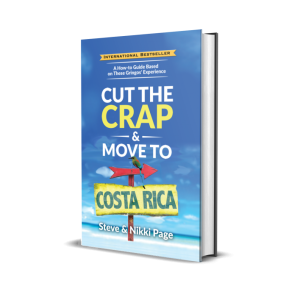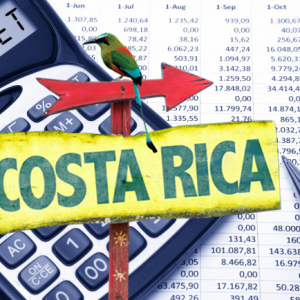
How to Work in Costa Rica
Have you ever wondered how to work in Costa Rica? We receive daily inquiries on how to work in Costa Rica. Have you considered moving to Costa Rica but are not yet able to retire? On most social media streams these questions are met with nearly hostile responses reporting that it is "illegal to work in Costa Rica". Although the statement isn't entirely false, it is also only partially true. We discuss income options in the "Income" chapter of our book, Cut The Crap & Move To Costa Rica.
Labor Laws
Firstly, Costa Rica has labor laws just like all other countries. In order to legally receive income in Costa Rica, you must follow their laws and guidelines. (The key phrase is "receive income in Costa Rica". We will discuss this statement more in our next blog, "Working Abroad How To Making Money From Anywhere In The World".) The purpose of these laws and regulations are to protect the citizens and residents of the country. Obviously, they want to ensure the taxpayers are able to support themselves first.
Secondly, taxpayers are the priority before trying to help vacationers extend their stay. Many citizens of every country around the world get upset when outsiders take their jobs. The foreigners are making it more difficult to provide for themselves and their families. And this is especially true if they are doing it illegally. These policies are similar to the processes required for people to work in North America or most other developed countries. They allow the country to receive the tax income necessary to provide the infrastructure. The taxes pay for services like roads, police, firefighters, social services, etc.
If you plan on living in Costa Rica for more than a couple of years it is best to file for permanent residency. After all, you will be using the services of the country and there are many benefits to making your residency official and legal.
Employment in Costa Rica
So, you're not a resident yet, now what? For an expat to be able to legally receive income from an employer in Costa Rica they must be a citizen of Costa Rica, have legal Permanent Residency, or apply for a work visa. Similar to in the United States, there is a process to applying for the work visa. And since it is controlled by the government you can expect it to be difficult.
Yes, it is difficult but not impossible. In order to qualify, you must be highly skilled or be able to perform tasks that cannot be performed by a Costa Rican. Simply speaking English is not enough. Although, some private schools that cater to expats are willing to apply for the work visa for teachers who are native English speakers. Or if the applicants have knowledge and training relating to the curriculum of North America such as English, American History etc.
Several Costa Ricans, especially those near large cities and tourist areas have a high level of education and many are bilingual. This makes it increasingly difficult to meet the requirements of the work visa. If you are interested in applying for a work visa you will need to research employers and petition them to apply for the visa. It may take some extra time and effort, but it can be done.








